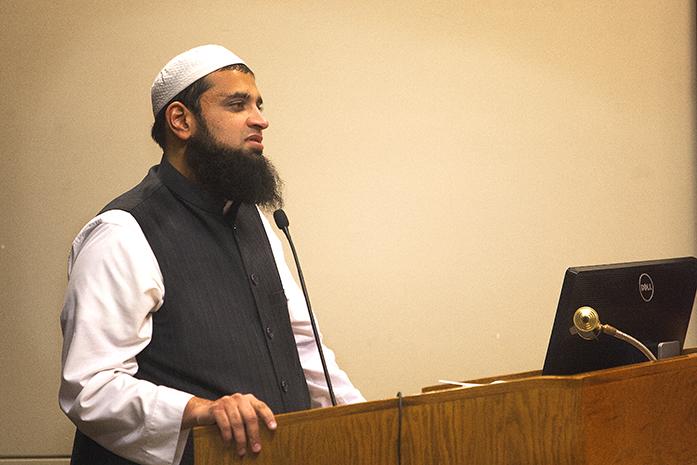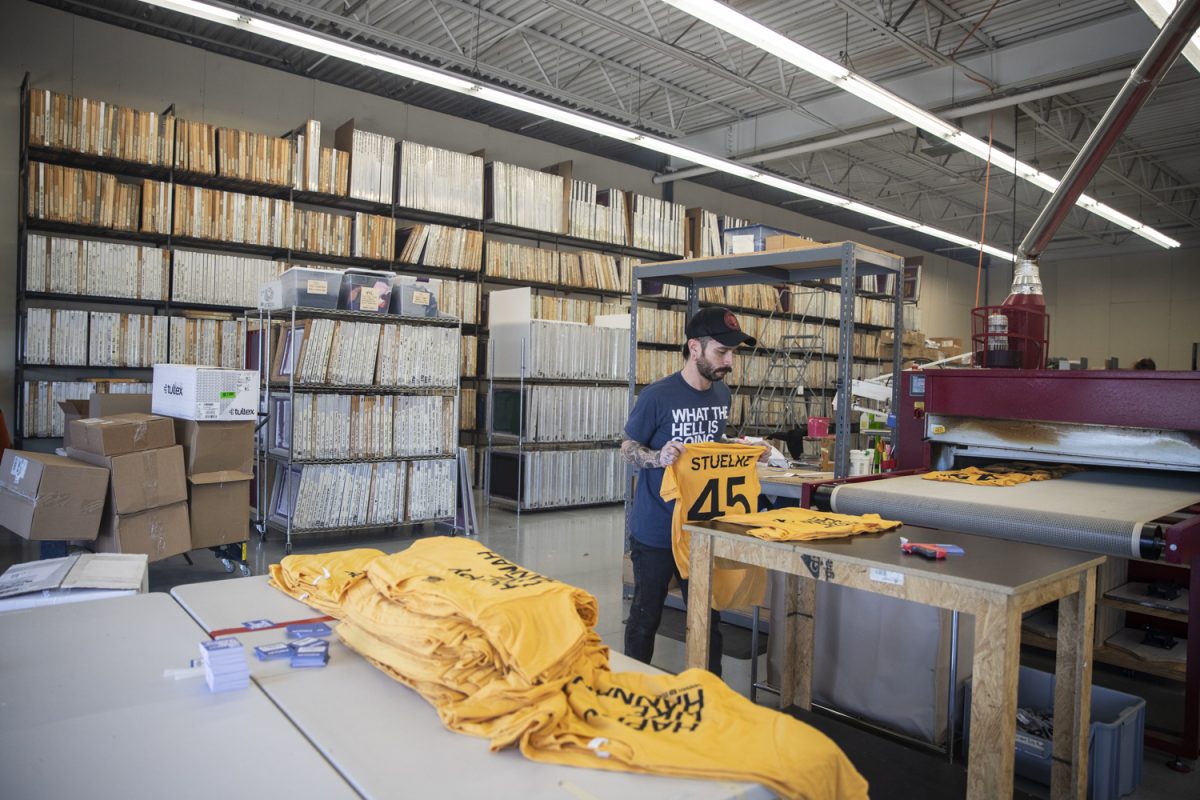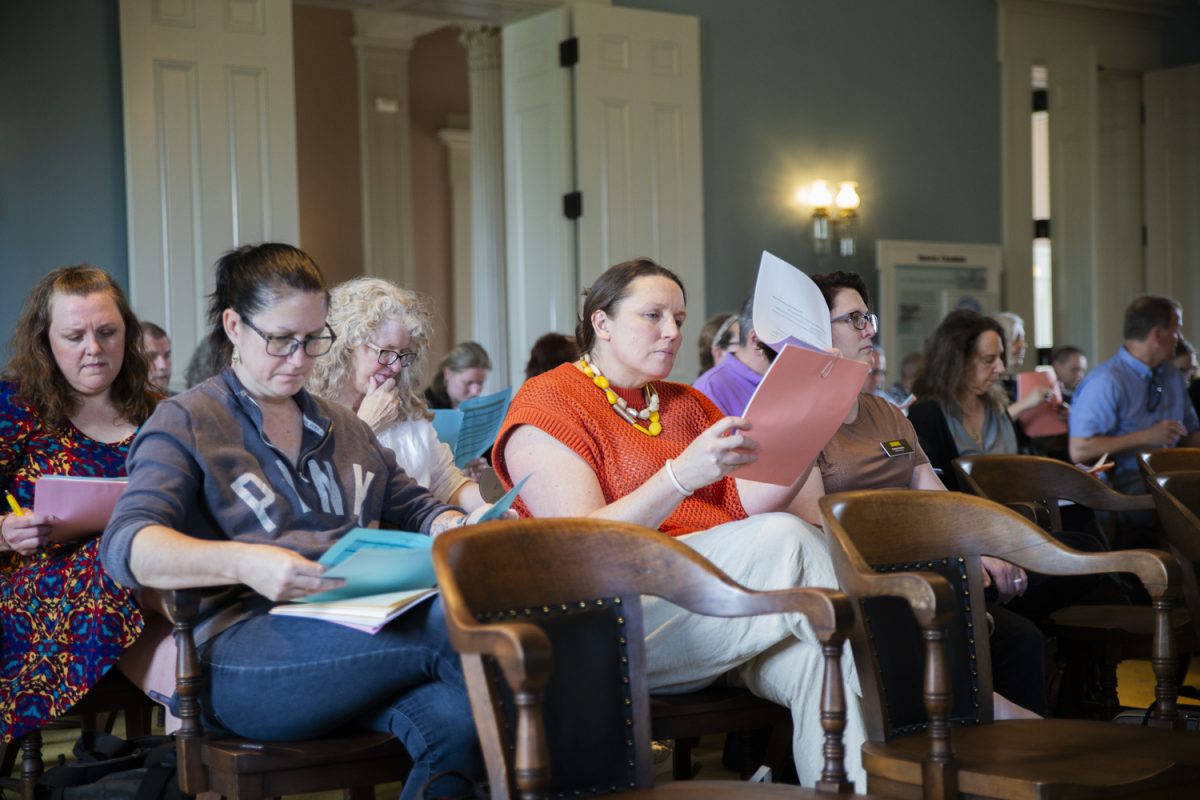The Muslim Student Association held an event to dispel stereotypes about Islam.
By Emi Bendler
In light of the current political climate, students from the University of Iowa Muslim Student Association held a lecture on Jan. 27 in the IMU hoping to combat stereotypes associated with the religion.
The event, titled “Misconceptions of Islam,” featured Islamic scholar Mufti Minhajuddin Ahmed, a Chicago resident who hosted the event.
The theater was filled with dozens of people, ranging from toddlers to men and women.
Abdualrahman Ismail, the public-relations officer for the Muslim association, said the current political climate definitely affected the timing of the event.
“Islam and Muslims are getting a lot of attention recently because of Trump and his decision,” he said.
During the talk, Ahmed shared what it means to be a Muslim, using the phrase “We as Muslims believe” to remind people that he knows that not everybody believes what he does.
He took time to share some key beliefs along with common misconceptions that people have about Islam. One issue he touched on was terrorism in the name of Islam.
“Not all Muslims are terrorists, and not all terrorists are Muslims,” Ahmed said.
He said that while everybody feels pain when terrorist attacks occur, Muslims feel a “double pain,” because they’re mourning both the lives lost and people injured, along with believing that their entire religion is being wrongfully accused.
He pointed out other acts of terrorism that have been done in the name of a religion.
“It would be a great injustice if we said Christianity is responsible [for the Crusades],” he said. “Terrorism has no religion.”
When asked about the best way to combat these misconceptions and Islamophobia, Ahmed looked toward education.
Ahmed Souaiaia, a UI associate professor of Islamic and Middle Eastern Studies, echoed Ahmed’s advice saying, “The university is a great place to learn and overcome negative stereotypes.”
Ismail also gave his insights, saying, “I would say to those people to please come to our [Muslim Student Association] events and meet us, because we really want to be friends and not enemies.”
During the Q&A, many people expressed concern about the new government officials.
One person asked if it would be considered disrespectful if everyone converted to Islam to try to stop certain government orders being put into place. Another asked if it is disrespectful to wear a hijab if they are not a Muslim.
“My heart is so warm,” Ahmed said, referring to these questions. He expressed his love that people would consider doing these things for his religion.
After the event was over, many of the attendees stayed around to talk to either each other, people from the Muslim association, or to Ahmed.
UI student Joseph Stiefel, who attended the event, said before the lecture he felt “too inadequate” to respond when he heard Islamophobia. However, after hearing Ahmed talk about the religion, he feels more informed and ready to stand up against discrimination.
Erica Dangos, another attendee, agreed with Stiefel, saying, “I feel more informed coming out of it.”
The association holds various events throughout the year. The members welcome Muslims of any race or gender and anyone else who is interested in joining them.







